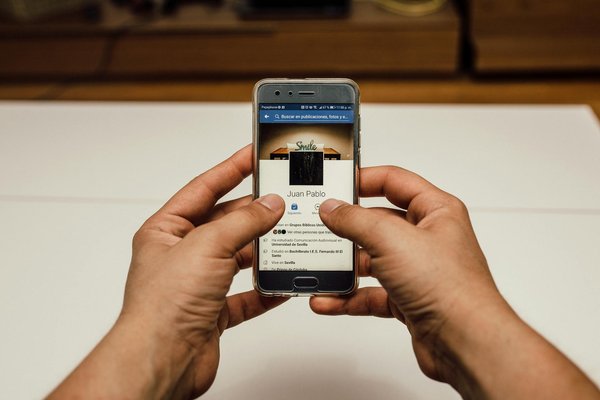Overview of 5G Technology and Its Relevance to Marketing
5G technology represents a significant leap from previous generations by offering dramatically faster data speeds, lower latency, and the capacity to connect a vast number of devices simultaneously. Unlike 4G, 5G can support up to 10 gigabits per second, enabling real-time data processing that is essential for interactive marketing applications. The ultra-reliable low-latency communication (URLLC) and massive machine-type communication (mMTC) features allow marketers to implement more immersive experiences and personalized content delivery.
In the context of UK marketing, 5G technology facilitates a marketing transformation by enabling advanced data analytics and enriched customer engagement across multiple platforms. Marketers can leverage 5G-powered technologies such as augmented reality (AR) and virtual reality (VR) for compelling advertisements, or deploy Internet of Things (IoT) devices to gather real-time consumer behavior data. This enables targeted campaigns that adapt instantly to consumer interactions, increasing relevance and conversion rates.
Furthermore, the faster connectivity offered by 5G technology unlocks new possibilities for mobile-first marketing strategies crucial in the UK’s digitally savvy market. Businesses adopting 5G-driven marketing solutions can gain a competitive edge by delivering seamless, personalized experiences that resonate more deeply with consumers.
Enhanced Consumer Experiences Through 5G
The arrival of 5G mobile experiences is transforming how brands connect with customers, especially across the UK. With the enhanced speed and lower latency 5G offers, content delivery becomes faster and more stable, allowing for richer, high-definition multimedia presentations that captivate users instantly. This leap in connectivity means consumers engage with brands in ways that were previously impossible on mobile networks.
One compelling application is in immersive marketing, where 5G enables seamless Augmented Reality (AR) and Virtual Reality (VR) campaigns. Brands can deploy interactive 3D visuals and real-time virtual environments that adapt fluidly to user interactions, creating memorable and dynamic experiences that deepen emotional connections. For instance, shoppers exploring products via AR can visualize items in their own space without lag, boosting confidence and satisfaction.
Moreover, 5G’s reliability supports innovative engagement strategies that keep customers hooked. From instant feedback loops to live virtual events, companies across the UK leverage 5G’s capabilities to refine customer engagement UK initiatives, resulting in more personalized and timely communication. This technological evolution is a game-changer for marketers aiming to stand out in a crowded digital landscape, harnessing 5G mobile experiences to elevate interaction quality and brand loyalty.
Applications of 5G in UK Marketing Campaigns
5G technology is revolutionising IoT marketing UK by enabling seamless connectivity between devices, allowing marketers to deliver highly personalised advertising. With 5G’s low latency and high bandwidth, brands can collect and analyse data from IoT devices in real time, tailoring messages to consumer preferences instantly. This capability is the backbone of effective real-time marketing, turning static campaigns into dynamic experiences that adapt as customer behaviours evolve.
For instance, smart city infrastructures in the UK provide valuable touchpoints for location-based advertising. Retailers use IoT sensors to detect foot traffic patterns, enabling them to send personalised offers directly to smartphones as potential customers pass by. This precision targeting ensures marketing efforts are not only timely but contextually relevant, boosting engagement and conversion rates.
Moreover, integrating AI-driven analytics with 5G enhances the agility of marketing strategies. Campaigns can be adjusted on the fly, responding to live data rather than relying on outdated reports. UK brands adopting these technologies gain a competitive edge by delivering compelling, personalised advertising that resonates deeply with their audience while efficiently using resources.
Benefits and Challenges of 5G Adoption for Marketers
The benefits of 5G in marketing are substantial. Marketers gain access to unprecedented speed and responsiveness, enabling near-instantaneous data transfer. This allows for more sophisticated, real-time campaigns that engage consumers directly without lag. Enhanced mobile experiences, such as augmented reality and interactive ads, become more viable, revolutionizing the digital marketing evolution. With 5G, marketers can harness richer data analytics, personalizing content based on immediate user interactions.
However, several marketing challenges in the UK slow 5G adoption. Infrastructure rollout remains uneven, with rural areas experiencing slower improvements compared to urban centers. The significant investment cost for advertisers and network providers creates a cautious approach. Additionally, consumer adoption varies, as some users resist upgrading devices or plans, limiting the immediate reach of 5G-driven campaigns.
Despite these obstacles, the progression of 5G will continue reshaping digital marketing in the UK, providing innovative tools that enhance brand interaction. Overcoming infrastructure and consumer barriers is key to unlocking the full potential of 5G’s benefits. Marketers prepared to adapt will likely lead in this evolving landscape.
Trends and Future Outlook for 5G in UK Marketing
The future of 5G in UK marketing is brimming with transformative potential. As 5G technology continues to roll out, it enables faster data transmission and ultra-low latency. This paves the way for more immersive and interactive marketing campaigns, such as augmented reality (AR) experiences and real-time personalized advertising. Businesses can leverage these advancements to engage with consumers on an entirely new level.
Experts in marketing UK foresee that 5G will accelerate the adoption of AI-driven analytics, allowing brands to adjust campaigns dynamically based on live consumer behavior. This shift means companies will not only target audiences more precisely but also create a seamless omnichannel presence.
Among the UK marketing trends, the integration of 5G supports richer video content and instant customer feedback loops. Brands can conduct live events and product demos without buffering interruptions, boosting consumer trust and interest. Furthermore, evolving strategies will focus on sustainability as digital tools improve efficiency.
In summary, the expert insights marketing UK offers highlight 5G as a catalyst for innovation, reshaping how marketers design experiences. Staying ahead means embracing these trends proactively to maintain competitive advantage.
